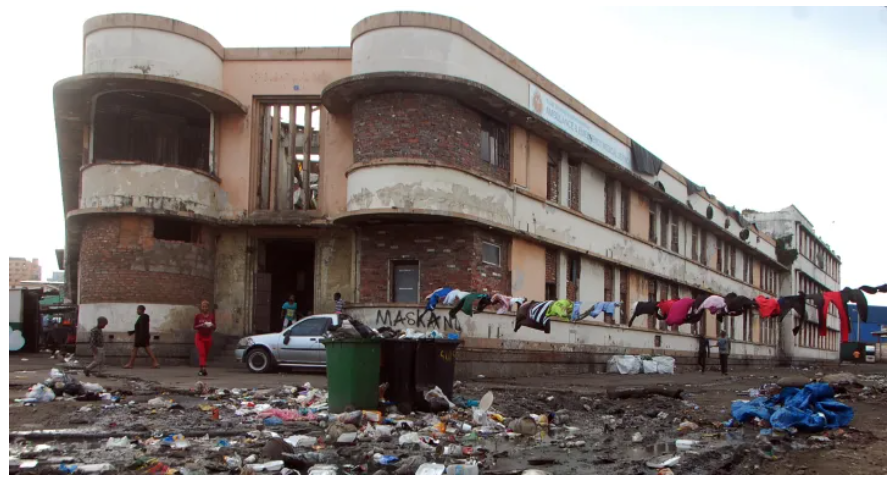
Soothing a Savage Wife
November 17, 2017
Cornubia Cornucopia
November 20, 2017Colin Kisten has been wildly successful as a property developer, but he tells Greg Ardé that family will always come first.
“I’m a poor man’s son … I don’t ever want to be shackled by wealth.” In a city full of nouveau riche and self-proclaimed billionaires, Colin Kisten is a tonic. The real estate magnate is the furthest thing from a hackneyed property baron. He’s quiet, polite and without bombast, and he’s arguably the biggest independent residential developer in Durban, having recently purchased land worth R300-million from Tongaat Hulett Developments, in the Umhlanga and Sibaya node.
He plans to roll out his projects (about 1 000 apartments in five signature buildings) over three years, at a cost of R1.6-billion. Dressed in a smart golf shirt and black slacks, Kisten makes for an animated picture in his Umhlanga offices. The smart suite is nothing flash, and as he talks with his hands he paints a vivid picture of how he started, light years away from the boardroom table he now commands. Thirty years ago Kisten was a roadside smouse in Mobeni, south of Durban.
He was expelled from school in matric because he joined anti-apartheid demonstrations. He was also banned from furthering his studies at any government-aligned institution. He left Durban, he says, to avoid being harassed by the police and went to Gauteng to stay with a friend. There, he met the woman who would become his wife. Kisten later returned home to Umhlatuzana and became a street vendor, selling clothing and other wares around Mobeni. “I sold on credit at times and learnt that, in business, your word is your bond.” He did well, soon realising he needed his own wheels. He haggled with a car salesman and secured a battered Ford Cortina for R2 500, half the asking price.
He and his unemployed mates then pimped the ride so spectacularly that Kisten sold it for 100% profit and saw a gap selling cars. At the time video recorders were taking off and he leased space in a neighbourhood supermarket, renting out movies and VHS players. He also created a small space at the back of the store to set up a shoe-repair business after his father, an experienced shoe factory worker, taught him how to mend footwear. Kisten was 21 and upbeat; he was making money and was about to be married. But tragedy struck on the eve of his wedding – his two elder brothers were shot dead. Kisten was bereft.
He spent hours at night sitting on his brothers’ graves, until he redirected his despair. “I had to be three sons to my parents. Adversity had driven me thus far. I was on a path and determined to survive.” When his landlord needed to sell the supermarket at which he was renting space, Kisten bought it. Then, one of the biggest hotels in Chatsworth came on to the market.
Kisten sold everything to pay R1.2-million for the premises, only to discover that the sellers hadn’t disclosed a tax debt. He lost everything he had invested. All he had to his name was a house he had recently bought in Malvern. He turned to flipping cars from his back yard, until one afternoon he struck up a conversation with an estate agent who was selling the house across the road. He learnt the agent was living in his car with his five-year old daughter. “I told him he had to move into our spare room and they did.
Meeting Richard changed my life.” The two struck up a friendship and when Kisten wasn’t selling cars he was hanging out at a Realty1 office. He was there so often that he ended up joining the team, and within six months he was the top agent. He soon set up on his own agency in the dilapidated premises of a former fruit and vegetable shop, and eventually his company had five offices around Durban and 72 employees. Kisten also snapped up 32 properties for himself, including shops, houses and offices. At the time he and his conveyancer spoke about buying property in Umhlanga.
“Honestly, it seemed so far away. I was happy, I had my family and had my mom and dad with me. We lived in Malvern and used to drive to Umhlanga and sit in the car and admire the view and dream.” The dream became a reality when the conveyancer invited Kisten to be part of a consortium developing the Grand Floridian, an upmarket residential complex in Umhlanga Rocks Drive with a build value of about R110-million. The success of the venture allowed the partners to go solo and Kisten set up his own company, Africa Rising. He bought more land from Tongaat Hulett and built high-rise buildings with shops and apartments. He did well, but before the global recession hit he sold everything, put his money in the bank and went into preservation mode.
“I went to work in Cape Town as a project manager on a property I sold in Century City. I take risks but I never wanted to be vulnerable like I was with the hotel in Chatsworth.” By 2013 Kisten’s parents had both passed away and he missed them terribly. “After every one of my deals I used to go home and tell them about it. I had the chance to tell my mom and dad how much I loved them when they were alive. Looking after my family was what drove me. Initially I think I was driven by anger, but then I realised I had to redirect that anger or I would be bitter. I have a lovely family and a beautiful house in Umhlanga. But I’m a poor man’s son and I will always be that.
“I don’t need all the trappings. I don’t need a Ferrari in the garage. I am happiest in a pair of shorts and a torn T-shirt around a braai with my family. I am the underdog in any deal. My approach is unassuming and people underestimate me, and that’s fine, because that’s when I do my best deals.”
“I don’t need all the trappings. I don’t need a Ferrari in the garage. I am happiest in a pair of shorts and a torn T-shirt around a braai with my family. I am the underdog in any deal. My approach is unassuming and people underestimate me, and that’s fine, because that’s when I do my best deals.”
COLIN KISTEN’S TIPS FOR ENTREPRENEURS
• Simplicity is key.
• Don’t be sentimental about property. You must be ready to sell at any time.
• You determine your legacy.
• People before profit.
• My parents’ determination and hardship became the cornerstone of my love and care for them. It was a constant reminder that I had to protect and care for them. That became one of my greatest motivating factors.
When Kisten was six years old he remembers his dad leaving for work at 5am and he and his mom walking 7km to the hardware store to buy materials for the house the family was building in Umhlatuzana. Today, Kisten goes to work designing and building The Madison, The Marina, Aria and Jefferson, all in central Umhlanga, and another development in Sibaya. The mixeduse and residential buildings will be built around Umhlanga Hospital and about 250 units have been sold off plan. Last year the company created 1 000 construction jobs and this year it expects to add another 500.


